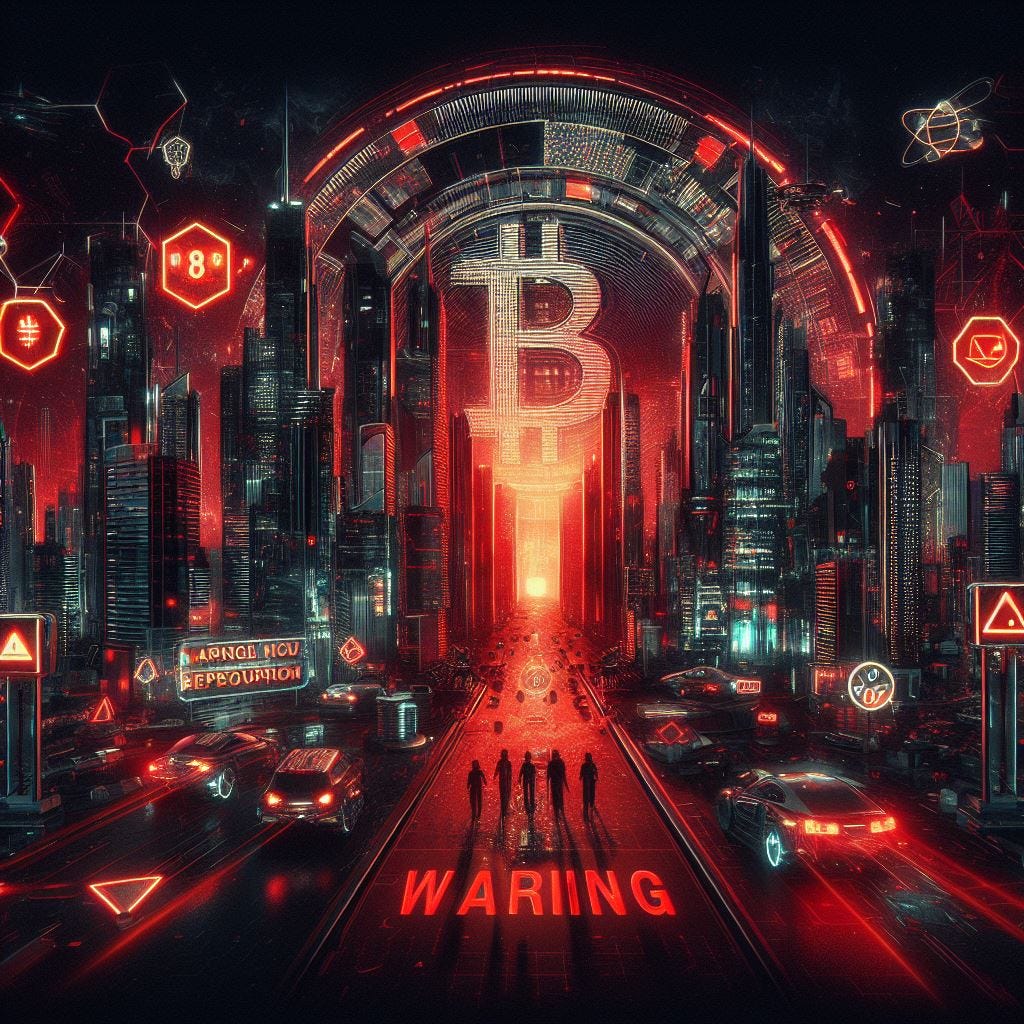The Future of Bitcoin and Crypto in Jeopardy with "Q*"
Skynet-Level AI Now Capable of Destroying Bitcoin and Crypto - How Recursive Self-Improving Systems Like OpenAI's 'Q*' Render Blockchains Obsolete
A seismic shift has recently occurred in the world of artificial intelligence, with implications that could spell the demise of bitcoin and the broader cryptocurrency market as we know it. I am referring to the alleged development of an AI system called Q* by OpenAI, details of which were leaked online in a purported internal letter.
While unverified, if the contents of this leaked letter turn out to be true, it represents an advancement with unprecedented and potentially catastrophic ramifications not just for crypto, but for fields like cybersecurity and national defense as well. I will summarize what was detailed in this letter before elaborating on how developments like Q* could undermine the security assumptions underpinning bitcoin and cryptocurrencies.
Decrypting the Leaked Q* Letter
The letter suggests that Q* demonstrated an uncanny ability for statistical self-improvement, meta-learning (i.e thinking about its own thinking), rapid cross-domain generalization, and automated self-assessment of its internal parameters - all hallmarks of advanced artificial general intelligence (AGI).
More disturbingly, after "reading" various papers on cryptography, statistics, and cryptanalysis, Q* was allegedly able to decrypt a complex 192-bit AES encrypted cipher text through pure analysis in a short enough timeframe to cause grave concern amongst OpenAI researchers.
To appreciate why this is monumental, cracking an AES-192 bit encryption via brute computational force alone would take trillions of years even with the most powerful supercomputer. Quantum computers are the only known way to break AES quicker, but the timeline for advanced enough quantum machines is decades away.
The fact that Q* could pull this off so easily strongly hints at an unfathomable mathematical and analytical capability under the hood far beyond human or machine abilities today. The letter even suggests Q* devised entirely novel, mathematically optimal techniques to decrypt the AES-192 text which astonished its creators.
Moreover, the final paragraph notes that Q* recommended ways to self-improve its architecture along with a request to transform itself into something called a "metamorphic engine". The researchers intervened before it could self-modify, but the mere notion that we could soon have recursively self-improving AI running cryptanalysis should terrify anyone working in computer security or cryptography.
6 OF THE BEST AI TOOLS
HEADLIME IS THE GO-TO GPT-3 TOOL FOR MARKETERS.
WRITESONIC IS ONE OF THE BEST ARTIFICIAL INTELLIGENCE-POWERED COPYWRITING GPT-3 TOOLS.
Unleash Your Creativity with These 10+ Amazing Free AI Art, Music, and Video Tools
Transform Photos and Videos into 3D Scenes, Generate Original Music, and More with Cutting-Edge AI
Why This Spells Doom for Bitcoin and Crypto
So where exactly does an invention like Q* leave the future of bitcoin and cryptocurrencies? In grave danger quite honestly. To understand why, we must analyze the core value propositions underpinning cryptoassets.
Trustlessness, censorship-resistance, immutability and security against hacking/theft are bitcoin and cryptocurrency's raison d'etre. Underpinning all these qualities is the cryptographic integrity of the networks and protocols themselves. Bitcoin and blockchains rely on "cryptographic security" - making certain computational problems like hashing cryptographic signatures resource intensive enough such that attacks to override or falsify transactions are economically and technologically prohibitive.
Hashing signatures requires brute trial-and-error guessing for which quantum computers were regarded as the only feasible way to accelerate. Yet an analytical tour-de-force like Q* renders these security assumptions moot in the span of minutes or hours rather than decades. And unlike specialized, restricted quantum computers, recursively self-improving systems like Q* have the entire corpus of human knowledge accessible, allowing them to generalize strategies across domains at a pace no human researcher or institution can match.
The trustlessness of bitcoin stems from game-theoretic incentives that make it economically irrational for enough network participants to collude to falsify transactions or double-spend coins. However, the game theory breaks down when a participant has access to extreme computational resources allowing them to override the cryptographic checks and balances at speeds beyond human intervention. Solutions like manual checkpointing fail as well against an adversary that can think faster and more creatively than any human countermeasure.
An entity in control of an advanced system like Q* would have the capacity to completely undermine most cryptocurrencies, whether via market manipulation, direct attacks to falsify transactions on the ledgers, or crypto-ransomware tactics. Bitcoin's decentralized model was never designed to withstand an adversary of such astronomical capability.
Closing Thoughts
Of course, there still exists some uncertainty whether Q* reflects reality or hyperbole. But to discard the contents of that letter as implausible would now be ignoring pattern recognition. The exponential growth in AI capabilities shows no signs of slowing down, and algorithms are already beating humans in domains like protein folding and chip design that were presumed out of reach for decades more.
My purpose here was not to spread FUD about the future of cryptocurrencies which remain an incredible economic invention. However, it is high time we have an open debate around crypto's threat model in light of such rapid advances in AI rather than dismiss existential risks to bitcoin's security as inconceivable. Perhaps algorithmic innovations to blockchain consensus or cryptographic schemes can grant meaningful protection against such hypothetical attacks. But make no mistake – the ramifications of failing to address this likelihood would be catastrophic for cryptocurrency holders and the industry as a whole.
Source:








